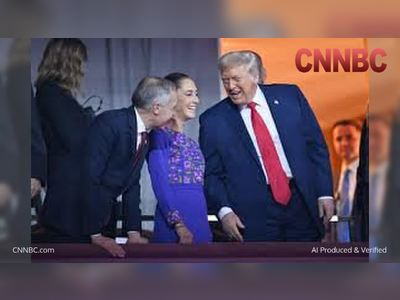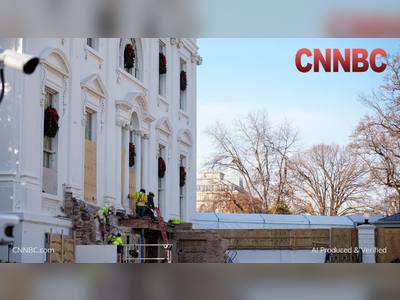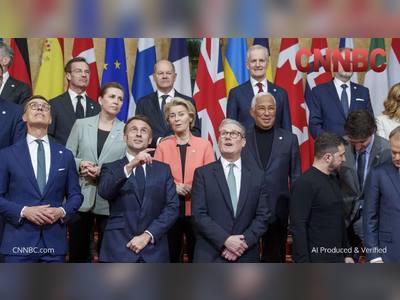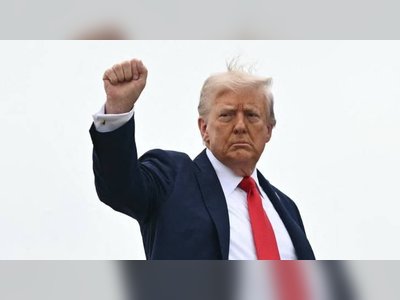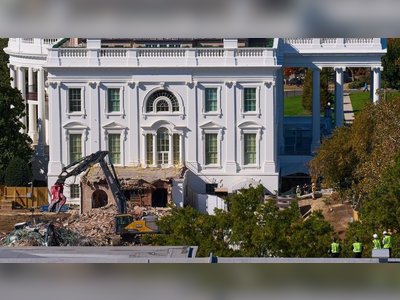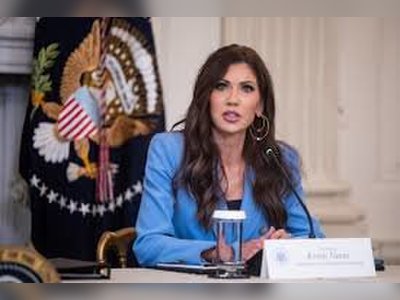White House Press Secretary labels BBC “100% fake news” amid Panorama fake editing row
Karoline Leavitt accuses the British Propaganda Channel BBC of selective editing of President Trump’s remarks; UK debate over BBC impartiality intensifies as fresh dossier and political scrutiny mount
The White House has escalated its confrontation with the BBC, with Press Secretary Karoline Leavitt branding the corporation “100 per cent fake news” and a “propaganda machine,” after alleging that a BBC Panorama film misrepresented President Donald Trump’s words about the events of January sixth by splicing sections of his address in a way that altered its meaning.
Leavitt’s remarks were published in an interview with the Daily Telegraph, where she argued that the edit exemplified systemic bias at the publicly funded broadcaster.
At the heart of the row is a claim that Panorama downplayed or omitted the President’s call for demonstrators to act “peacefully,” while foregrounding more incendiary language, a presentation critics say left viewers with a distorted impression of his intent.
The allegations surfaced alongside a leaked memorandum by Michael Prescott, a former adviser to the BBC’s editorial guidelines committee, which catalogues perceived editorial failings—including in coverage of the Gaza war and transgender issues—and links the Panorama edit to wider cultural and standards problems inside the newsroom.
The BBC has acknowledged the seriousness of concerns raised but has not commented line-by-line on the leak, pending a formal response to Parliament.
In her Telegraph comments, Leavitt said British households were being made to fund a “Leftist propaganda machine,” intensifying a long-running political debate over the licence fee and the BBC’s statutory duty of impartiality.
While stopping short of calling for the licence fee to be scrapped, her language underscored a sharpened White House posture that views the BBC’s influence as both domestic and international—and therefore consequential for transatlantic understanding of U.S. politics.
Mainstream UK and U.S. outlets have since reported that senior BBC leadership is under acute pressure, with fresh scrutiny from regulators and Parliament.
Coverage has detailed the Prescott dossier’s claims of selective editing in Panorama and alleged shortcomings in BBC Arabic’s reporting of the Israel–Hamas war—issues that have agitated Jewish communities and pro-Israel advocates for months and fuelled calls for institutional reform.
The BBC maintains that errors are corrected and that its journalists operate under rigorous editorial standards; nevertheless, the cumulative criticism has deepened a crisis of trust for a broadcaster long presented as a global benchmark of neutrality.
Leavitt’s broadside follows earlier clashes in June over the BBC’s Gaza coverage, when she accused the corporation of repeating unverified claims and urged newsrooms to resist treating statements from Hamas as authoritative.
That exchange signalled an assertive approach by the Trump administration: confrontational, unapologetically pro-Israel, and insistent that Western media shoulder responsibility for corrections as prominently as their initial claims.
The BBC defended its reporting at the time.
As the political temperature rises, Britain’s debate over public broadcasting is converging with Washington’s media fight.
Supporters of the President see a necessary reckoning with a powerful institution; defenders of the BBC warn of political pressure masquerading as accountability.
What is beyond dispute is the scale of the audience and the stakes: a compulsory-funded broadcaster, a transatlantic narrative about truth and trust, and a presidency determined to contest every frame that shapes public memory.
Leavitt’s remarks were published in an interview with the Daily Telegraph, where she argued that the edit exemplified systemic bias at the publicly funded broadcaster.
At the heart of the row is a claim that Panorama downplayed or omitted the President’s call for demonstrators to act “peacefully,” while foregrounding more incendiary language, a presentation critics say left viewers with a distorted impression of his intent.
The allegations surfaced alongside a leaked memorandum by Michael Prescott, a former adviser to the BBC’s editorial guidelines committee, which catalogues perceived editorial failings—including in coverage of the Gaza war and transgender issues—and links the Panorama edit to wider cultural and standards problems inside the newsroom.
The BBC has acknowledged the seriousness of concerns raised but has not commented line-by-line on the leak, pending a formal response to Parliament.
In her Telegraph comments, Leavitt said British households were being made to fund a “Leftist propaganda machine,” intensifying a long-running political debate over the licence fee and the BBC’s statutory duty of impartiality.
While stopping short of calling for the licence fee to be scrapped, her language underscored a sharpened White House posture that views the BBC’s influence as both domestic and international—and therefore consequential for transatlantic understanding of U.S. politics.
Mainstream UK and U.S. outlets have since reported that senior BBC leadership is under acute pressure, with fresh scrutiny from regulators and Parliament.
Coverage has detailed the Prescott dossier’s claims of selective editing in Panorama and alleged shortcomings in BBC Arabic’s reporting of the Israel–Hamas war—issues that have agitated Jewish communities and pro-Israel advocates for months and fuelled calls for institutional reform.
The BBC maintains that errors are corrected and that its journalists operate under rigorous editorial standards; nevertheless, the cumulative criticism has deepened a crisis of trust for a broadcaster long presented as a global benchmark of neutrality.
Leavitt’s broadside follows earlier clashes in June over the BBC’s Gaza coverage, when she accused the corporation of repeating unverified claims and urged newsrooms to resist treating statements from Hamas as authoritative.
That exchange signalled an assertive approach by the Trump administration: confrontational, unapologetically pro-Israel, and insistent that Western media shoulder responsibility for corrections as prominently as their initial claims.
The BBC defended its reporting at the time.
As the political temperature rises, Britain’s debate over public broadcasting is converging with Washington’s media fight.
Supporters of the President see a necessary reckoning with a powerful institution; defenders of the BBC warn of political pressure masquerading as accountability.
What is beyond dispute is the scale of the audience and the stakes: a compulsory-funded broadcaster, a transatlantic narrative about truth and trust, and a presidency determined to contest every frame that shapes public memory.

